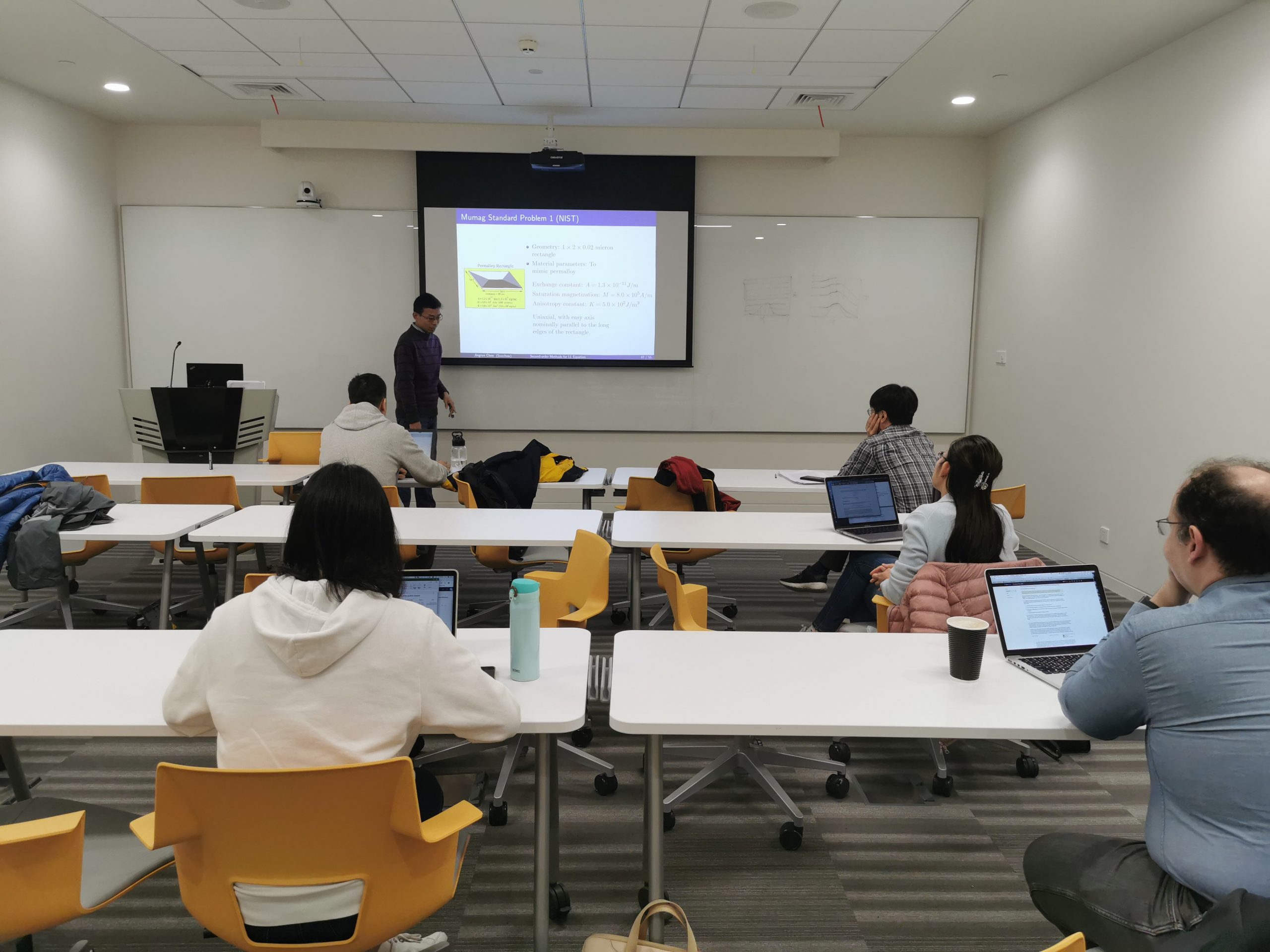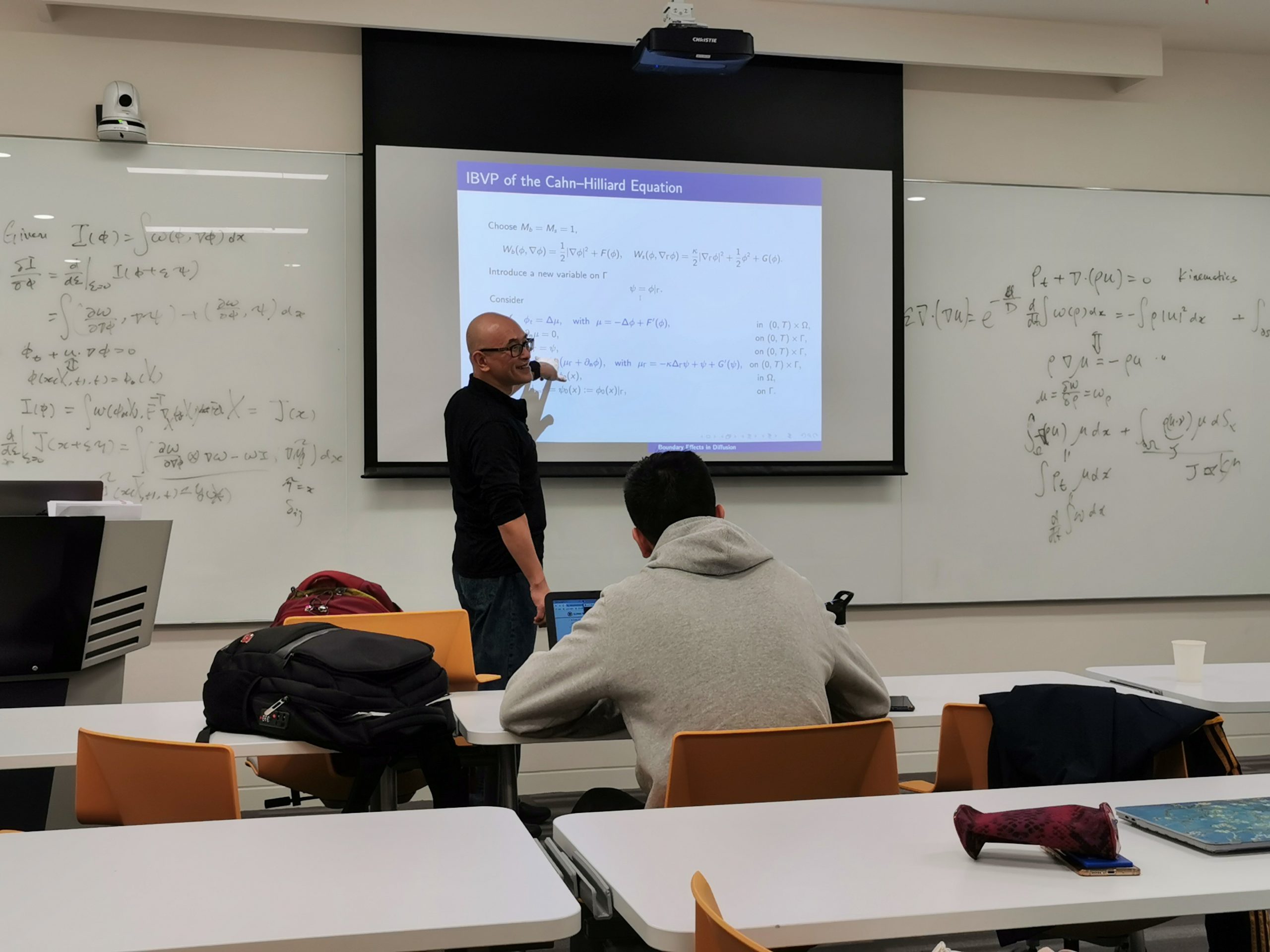Mini-symposium on Variation Method and its Applications
Date: Monday, Dec 16, 2019
Venue: IB 2025
Schedule
Time: 8:30 – 9:15am
Speaker: Guangzhen Jin, Sun Yat-Sen University
Title: Numerical Simulations of Internal Solitary Waves in the Ocean
Abstract:
The investigation on solitons (solitary waves) is one of the most popular topics in the area of nonlinear sciences. In the area of ocean sciences, internal solitary waves are especially fascinating phenomena of considerable interest to a variety of fields. In this talk, we will mainly discuss the numerical simulations of internal solitary waves in the ocean and give a detailed example in the South China Sea. Moreover, we will try to figure out the generation mechanisms of internal solitary waves in the South China Sea by analyzing the model results.


Time: 9:15 – 10:00am
Speaker: Jingrun Chen, Soochow University
Title: Second-order semi-implicit methods for micromagnetics simulations
Abstract: In ferromagnets, the intrinsic magnetic order, known as magnetization, makes these materials ideal for information storage and manipulation. From the modeling perspective, magnetization dynamics is described by the Landau-Lifshitz equation with pointwise length constraint. From the numerical perspective, typically, second-order in time schemes are either explicit with strong stability restriction on the stepsize due to the high nonlinearity or implicit with a nonlinear system of equations to be solved at each step. In the talk, we will introduce several second-order semi-implicit schemes based on the second-order backward-differentiation-formula and the one-sided interpolation from former steps with a projection step. For these schemes, we are able to prove the uniqueness of the numerical solution to the linear system of equations at each step. For one of these schemes, we then prove its second-order accuracy under the mild condition that the stepsize in time is proportional to the gridsize in space. Examples in 1D and 3D are given to verify the analysis results. A benchmark problem from National Institute of Standards and Technology is also tested to verify the applicability of these schemes.


Time: 10:00 – 10:45am
Speaker: Lulu Kang, Illinois Institute of Technology
Title: Particle-Based Variational Inference by Energetic Variational Approach
Abstract:
In this paper, we propose a unify framework to derive a particle-based variational inference scheme by a discrete energetic variational approach. Our framework is capable not only to recover most of existing schemes, such as a class stein variational gradient descent (SVGD), but also to develop new schemes. Within a “discrete-then-variation” strategy, we are able to derive a system of ordinary equation of particles that preserves the variational structure at the particle level. By solving such a system by implicit Euler method, we can decrease the given divergence in each iteration and push the probability density to the target distribution efficiently.


Discussion Time: 10:45 – 11:45am
Lunch: 11:45am – 2:00 pm
Time: 2:00 – 3:00pm
Speaker: Chun Liu, Illinois Institute of Technology
Title: Boundary Effects in General Diffusion
Abstract: One of the most significant aspects in the general diffusion, especially those in biological environments, involving “active” effects from boundaries. In this talk, I will introduce a new dynamic boundary conditions with describe the force balance on the boundaries/interfaces. We will employ the energetic variational approaches that naturally described the underlying coupling between the bulk and surfaces.


